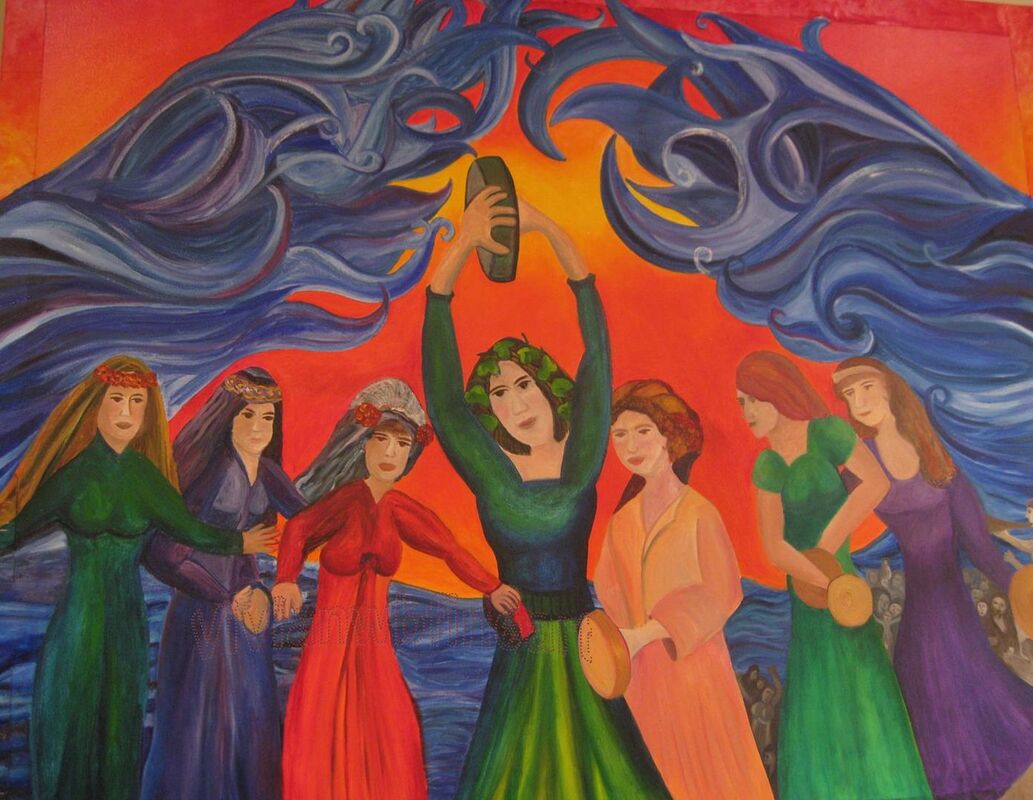A time of returnThroughout the year, the Southern New England Conference of the United Church of Christ reproduces the Daily Lectionary for use by churches. These are the suggested readings for Tuesday, March 16th: Numbers 20:1-13; Psalm 107:1-16; and 1 Corinthians 10:6-13. I would encourage you to read these short selections as part of your Lenten practice.
In the selection from Numbers, we hear a rather abrupt mention of Miriam’s death. This is strange except for the fact that Miriam is a woman. Other than this, Miriam was Moses and Aaron’s sister, a prophet and a leader of Israel. Her death, as pointed out by Rabbi Elan Babchuck at last weekend’s Super Saturday, may have disturbed Moses and Aaron more than the text implies. As yesterday’s reading attests, today’s depravation is not an unfamiliar occurrence. If waters could be miraculously turned potable, then waters could flow from a rock. And yet, the Bible says Moses struck the rock twice. This need not be a rapid succession of two hits. I imagine the scene as Moses striking the rock and expecting water to flow, but nothing happens. The crowd murmurs, Moses turns to his brother Aaron, both are anxious. With nothing happening, Moses strikes the rock a second time as if God may not have realized the first tap. After the second striking of the rock, the water flows and the people are satisfied – physically. However, the second striking of the rock betrayed a lack of trust on the part of Moses and Aaron before the congregation. They had doubted, and this failed to “show [God’s] holiness before the eyes of the Israelites.” For this offense, they were not permitted to lead Israel into the Promised Land. The rabbi linked this lack of trust with Miriam’s death. They seemed unable to grieve her passing, this pious leader of Israel, this prophet, this beloved sister of Moses and Aaron. Non-biblical tradition holds that it was Miriam who watched over him as he lay in a basket among the reeds of the Nile River. And yet she died and was buried in the wilderness, in a no-man’s land, in a place with no history or connection with her ancestors. She was buried a stranger. Moses and Aaron may have been more deeply hurt by this than the text allows. We should remember that according to the oldest Gospel, Mark’s, there is not a single follower who was beneath Jesus’ cross. Did the crucifixion cause them to lose trust? Mark and Matthew maintain the tradition that Jesus met with the disciples after the resurrection in Galilee. Why Galilee? Had they abandoned Jesus and disbanded themselves, and had they already returned to their prior lives in Galilee? Did they lose trust? It would be difficult to argue that the disciples were stalwart in their faith on Good Friday, but it is these same disciples who return to Jesus and begin the ministry and evangelism that led to Jesus’ name being known around the globe and worshipped by more people than any other religion. To lapse in trust is not the end of the story. Lent is a time to prepare for resurrection(s). Jesus rises from the dead and if we have had occasions where our trust has come up short, then Lent is a sacred time to resurrect our faith, to become reacquainted with a Saviour who loves us as much as the cross. Life is hard. Faith is sometimes hard. Trust can be lost. Quite extraordinary people lost their trust, but came back to do even more extraordinary things. I pray that this Lent may bring any who have had times of doubt back to faith. If you’d like, here is the link to the Massachusetts Conference’s daily reading schedule: www.macucc.org/lectionary.
0 Comments
Leave a Reply. |
NewsFaith, love and chitchat. Categories
All
Archives
June 2024
Follow
|
|
SERVICE TIMES
Sunday 9:30-10:30am Children Sunday School 9:30-10:30am Nursery care available during worship DONATE Make a single or recurring contribution by clicking here |
FOLLOW
|

 RSS Feed
RSS Feed
